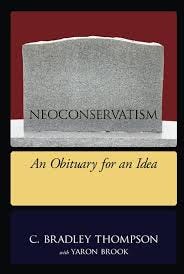
One phrase I heard a few times on my last DC trip was “goes hard.” Sure: generally, if your choice is to “go hard” or “go soft,” in general, it’s probably better to go hard. There are exceptions, though. Frankly—you can’t say the Holocaust didn’t go hard.
But actually, there is more than one dimension. There is “go big” versus “go small.” There is “go sharp” or “go smooth.” Any of these quadrants of governance style, in any situation, may be necessary. But when in doubt—always default to “big/smooth.” But all too often, what “go hard” turns out to mean is just “small/sharp.”
TLDR: “small/sharp” almost always sucks. Therefore, throwing random grad students who signed pro-Hamas op-eds into unmarked vans with black sacks on their heads is unlikely to be an effective strategic policy—as a matter of objective, Machiavellian political science, without the slightest reference to whether it is good and/or evil. The question of whether it is good and/or evil will obviously depend on your point of view. This is called the “is/ought distinction.” It was invented by a human named Hume. If you have a problem with me thinking this way, it is you who are weird and inhuman.
“Small/sharp” is what you need when Castor and Pollux Troy have planted a bomb in the LA Convention Center, and it goes off in 69 minutes. For the next 69 minutes, more or less any level of collateral damage is acceptable. You can “just do things.” However, outside the movies, legitimate, productive uses of “small/sharp” are rare.
And this is why you shouldn’t van people. Even if you can!
I refer to the recent news of surprise visa revocations, immigration detention, etc, for a few immigrant grad students, professors, etc, clearly low human capital individuals, who have committed various retarded, if hardly unusual, misdeeds—like writing a pro-Hamas column (probably plagiarized, certainly banal) in the lame student newspaper.
I want to be clear: I would not invite any of these people to any of my parties. All the Arabs I know are revolted by the “peace fetish” and the bizarre mascot affect of the global overclass toward the Palestinians. All the institutional structures that maintain this fetish need to be broken into dust. All the human beings in these systems need a new job, a new hobby, or even a new fetish—like writing love letters to serial killers. We have the Menendez brothers, so why do we need Hamas? We have sissy porn, so why do we need Palestine? And how, after 80 years of life as a bukkake dartboard for Harvard twinks, has all this worked out for Palestine?
I do not normally express strong opinions on this blog. I am only here to discuss abstract, formal questions in political science and philosophy. I always eschew any discussion of activism, advocacy, or policy—at least, policy for this regime. Which, despite the election, still remains pretty much what it always was. But—
I have a strong feeling here. My feeling is: chief, this ain’t it.
Go hard on X. Go hard on Y. Heck—even go hard on W. But don’t go hard on V. Don’t van people—at least, not these people, for these reasons. Here’s why. Yes, since you ask: it does involve Hitler.
The case against diesel therapy
Let’s take it for granted the USG has both the legal right and the physical capacity to van these people. Let’s go even farther. Let’s assume it has the moral right.
I think one of Israel’s huge tactical mistakes is not putting the full October 7 video (compiled from Hamas GoPros) online. Supposedly out of respect to the victims and their families, they only showed it to journalists, diplomats, and other soulless cogs. They should have showed it at Cannes. But you can probably find it or something like it on the dark Internet.
Go watch whatever you can find of that, then read the Hamas op-ed or whatever, then open your Uber app and imagine it lets you call the author an “Uber ICE.” Just tap the button and click once to confirm—and she’s gone.
The app will play a sound. You’ll get a notification each time they move her to a new facility—“diesel therapy.” On Apple, you’ll see her in Find My, under “Enemies.” Will that feel moral? Heck yeah. For great justice! Go hard!
I get the vibe! I can inhabit the vibe! Now, please think about how retarded this shit is.
Frankly: vanning professors is so retarded that I think the administration should look on it as a case of malicious compliance—“closing the Washington Monument.” Frankly: whoever came up with this strategy belongs in a van himself. Indeed, next time America loses the election, he may end up there.
Or that’s my opinion, anyway. Here’s how I came to that conclusion. Also, after the paywall, I’ll explain what to do about the Cathedral instead.
Bombing vindicated
I want to stress that my aversion to “big/sharp” is not just the standard, boring “don’t be Hitler” take. Sure: don’t be Hitler. Sure: Hitler is important. But Hitler is hardly the most important aspect of the 20th century. It’s hard to be that important if you lose. So, let’s talk about mass killings of civilians in wartime—including, but not limited to, Hitler. Because the difference between vans and trains is only a difference of degree.
“Big/sharp” is always war in some sense—total war, limited war, race war, etc. Hitler was not a serial killer. He felt himself to be conducting a sort of unlimited race war. Given that unlimited race war is the normal pattern of intergroup interaction across approximately the last million years, we can’t be too surprised. We can also be quite confident that the race war was asymmetric. While there was no “international Jewish conspiracy,” and Hitler’s enemies certainly did not see themselves as conducting a race war, all evidence suggests that Hitler believed sincerely in his own racial thesis. For me, this only accentuates the tragic and even ironic nature of the whole story.
Moreover, although the Allies were not conducting a race war, they were conducting an unlimited war—quite early in the war, the Allies had lost any compunction about collateral damage in the air war against Germany and Japan, and come to regard “city bombing,” or as we now call it “strategic bombing,” explicitly as a positive good. Nor is it the case that Germany took the lead in the descent into just bombing civilians. (Nor were we, though our war was not a race war, above cynical racial propaganda.)
One of my favorite books on the shelf of “20th-century primary sources with titles that go hard” is Bombing Vindicated (1944) by J.M. Spaight. Spaight was Principal Secretary at the Air Ministry until 1937, so he knew what he was talking about.
In this unique source, Spaight explains that the British started the strategic bombing of cities (Rotterdam and Warsaw, he explains correctly, were still tactical)—and why:
(“Kief” is not, of course, the cannabis byproduct—but the city now known as “Kyiv.”) Spaight is like: bombing their cities works, so what are you going to do? We lied and said the Germans started it. But actually, we started it. We’re going to win, so we can tell the truth.
It works better for us than for them—so of course we like it and they don’t. So what are you going to do? Now, let me simp hard for the USSR… a weird trope. But not at all unusual in this period. Of course, moral logic is tough. Trolley problems abound:
Ice-cold military-theological logic, here. Which doesn’t mean one can’t be poetic too! “After Auschwitz,” said Adorno, “how can we write poetry?” A good question—but after the Hamburg firestorm, “Operation Gomorrah,” in which only 40,000 civilians (not all grandmothers or babies) lost their lives, Principal Secretary Spaight becomes almost a poet himself:
World War II. Good times. Well, that was a thing. Let’s not go there again. Question: was it good for the Jews? You’d think that if we learned any rule from World War II, it would be that anything that’s bad for the Jews is—probably bad for everyone else, too. Oddly, this seems to suggest that World War II was bad—when we know it was good. Discuss.
The elephant in the room in Bombing Vindicated is the core Giulio Douhet theory of morale bombing. Everyone knows this was the purpose of Hitler’s “Blitz” of London—which, as Spaight tells us, involved as many bombs as London dropped on Hamburg in a week. Everyone is correct! If Hitler had not adopted morale bombing, purely as a strategy of revenge (the V in V2) he would have likely stuck to the “Battle of Britain” fighter war, and might well have won it. Once again, the lesson is: don’t be Hitler.
The idea of morale bombing is pure game theory—destroying the enemy’s political will to fight, by making the population withdraw consent for the government, which by some policy or other is causing the country to be bombed. The people, who are (as we know) sovereign, will solve the coordination problem and overthrow their regime, winning the war for the bombing side.
In retrospect, we can see that this approach to “big/sharp” failed—not only for Hitler, but also for England. Bombing industrial plant worked to disrupt industry. Bombing cities did not work to disrupt morale. The specious claim of the city-bombers was that the cities were full of light industry, housed industrial workers, etc, and all industry was devoted to the war. A “colossal, concentrated battering” saves our soldiers’ lives.
It is hard to take this rationalization seriously—the problem is that, in hindsight from peacetime, Spaight’s vibe is just completely off. You can’t name a project “Operation Gomorrah” and then claim to be thinking in pure EA trolley logic, with nothing but pity for the “grandmothers and babies” who are unfortunately tied to the tracks. In our own day, the Israeli military has this problem—whether what they are doing is right or wrong, they cannot possibly stop the world from observing that they like it.
Like Hitler’s error in thinking that Anglo-America was controlled by the Jews, the error of morale bombing is a basic error of political science. As conditions deteriorate—for any reason, even one inflicted by their own government—humans do not revolt. They submit. The season of revolution is not the winter, but the spring—when the lambs play, and the rams fight. War and suffering create loyalty, not dissent.
This frivolous and ludic quality in democracy was never part of the period’s narrative, even amongst the enemies of democracy. Thus, leaders assumed that they could harm enemy populations to produce an incentive to act in their own collective self-interest. Such was the theory behind both the Aktion Reinhard and the destruction of Dresden. It lingered on, too, in the insane strategic nuclear forces of the Cold War. Hopefully we have seen the last of this heinous nonsense.
Spaight sticks strictly to the “cities as war factories” theory of aerial bombing. I read his admission that Britain initiated strategic bombing not as a heartfelt baring of all, not even as a martial boast, but as a limited modified hangout—on a point he is sure cannot be concealed from history. He is so anxious not to talk about morale bombing that he does not deny it—he does not even mention it.
But I think this is all we need to know about “big/sharp.” Actually, “big/sharp” is not as relevant to us as it may seem—because we are not in the spring, but the early fall. This is a separate story, though.
Always go bigger and smoother
As someone who has read a lot of books, here is what Hitler did wrong. He went too sharp, yes—but also, not big enough.
It’s far too little known that Hitler’s grand strategy was continental. Not only did it not include the conquest of Britain, even after the instant defeat of France, he also wanted to draw a line between European and Asian Russia. Hitler never had a design for territorial control outside Europe. When the Allies said he did—they were projecting.
Hitler’s standard peace offer was to give up the old German claims on a colonial empire (a “place in the sun,” in Great War parlance), in return for de facto German imperium over Europe. As for the Jews—if we liked them, we could have them.
If FDR had taken the deal, not even by packing more Jews into Brooklyn, but sending them to Cuba or even Alaska (like the Slattery Plan, which FDR shot down), history would have been different. We wouldn’t have had that war or that Holocaust.
Maybe we would have had another war or another Holocaust? Maybe… we would have had a cold war and a space race with Hitler, not Stalin? Maybe… Cuba would have been even more communist? It’s still history. It won’t be perfect. But… I’m going to pocket tens of millions of people not dying, and take a chance on what’s behind Door 2.
The problem with the “Axis” was that not only Germany, but also Japan and Italy, had no idea they were fighting a world war for world domination. They thought they were fighting regional wars, really rebellions, against US-UK-USSR-UN world domination. And after all—who ended up dominating the world? Meet our old friend, projection. It is a reliable, if not infallible, presumption that whoever caused a war is probably also whoever ended up winning it. And no, starting a war is not the same as causing it.
If German planners—not just Hitler—had started out thinking the war was total and global, the blitzkrieg would never have stopped at Dunkirk. “Sea Lion” was always halfhearted—for far too long, Hitler assumed England would make peace. If Germany and Japan had had one general staff, they would have attacked Russia simultaneously in 1941. Result: total Eurasian domination, competing hemispheric empires.
Instead, Japan let a gigantic stream of nonmilitary goods sail from San Francisco to Vladivostok, throughout the whole war. Why? Because the Japanese, too, were not actually fighting for world domination—odd as that seems. It doesn’t make the Japanese angels. It doesn’t mean the Rape of Nanking was actually consensual. It just means: they weren’t fighting for world domination. Nor were the Germans. Nor were the Italians. No—we were the “world domination” side. Sorry to break it to you now.
In short, the Axis lost because they didn’t go big enough. Maybe they were distracted by mistaking sharp for big. They certainly went way too sharp! But they went too sharp in their own ways—and in the end, they were so small that there was no Axis at all. (There certainly was no Axis high command, or anything remotely like it.)
It’s a little known fact that Hitler actually had a strategy behind the Holocaust. Yes—he stated it many times. Believing very sincerely that the US-UK-USSR-UN alliance against him was run by the Jews, and motivated by Jewish racial ethnocentrism, he had a silver bullet that could win any war against the Jews: the Jewish populations of Central Europe, whom he could hold hostage to deter and coerce the Jews in London and New York and Washington who were in charge of the “Western” world. Didn’t we just have a little talk about harming enemy populations?
So if Hitler had had a clue, the Holocaust could have been averted—because, although there were certainly influential Jews in those cities, they were (1) not exactly in charge; (2) neither religious nor ethnocentric Jews, but fully assimilated Anglicized Jews; and (3) not even originally Yiddish-speaking Jews, but originally German-speaking Jews. (They had arrived earlier. We yids were still very much up-and-coming at this time. It’s important to understand that the yekkes, despite all their airs, are no better than us.)
Since these groups were so mutually hostile that they had racial slurs for each other, this grand plan was the strategic equivalent of taking a population of Serbians hostage, to intimidate the Croats. The Croats are like… well… it’s true that a Serb is technically a human being. It makes noises with its throat—which one can often even understand. But it’s hard to get super emotional about it… and as for FDR (not a Jew), the Jews were Hitler’s problem. Why would FDR want to resolve Hitler’s “misfortune” for him, by letting him send them to us—even to Alaska? Even in Alaska, they’d cause trouble.
FDR, like most upscale Americans then, existed in a state of permanent genteel anti-Semitism. And that’s why we had a Holocaust. It all fits, unfortunately, doesn’t it? No, you don’t need to admire Hitler to agree that FDR was horrible. But he was good at it. So was Stalin. Hitler just ultimately wasn’t in their league.
So: too small, too sharp, lose the war, kill the Jews, and be history’s latest Satan figure. That’s what happens when you think small and sharp. Hitler happens. Don’t be Hitler.
Basic three-level policy analysis
There are three levels on which we can analyze the effects of any action. They are the level of theater (level 0), the level of substance (level 1), and the level of power (level 2). Unfortunately, the Trump administration is still mostly operating on levels 0 and 1. Positive impacts on level 2—and there are some—are uncontrolled and unintended.
On the level of theater (level 0), the question is whether the action makes the story better.
It’s clear that it’s an outrage that these people come to our country, cheer for barbaric murders of people just like them or us (half these Columbia grad students could have been at that desert rave), and even maybe had prior knowledge of it (supposedly, they kicked off a PR plan three minutes after it started—I actually think this is possible).
Within the Aristotelian dramatic arc of MAGA, therefore, vanning their sorry asses generates what Aristotle called κάθαρσις, or “cleansing.” Hindu mythology, too, has its concept of “karma.” And even our modern social scientists have discovered that “finding out” has a long-running statistical correlation with “fucking around.” Thus, Plan V is a clear win on level 0, the level of theater or drama.
On the level of substance (level 1), the question is whether the action is good for us.
Deporting foreign grad students is obviously a win for America. Many Americans want to get in to prestigious grad schools. One less place for them is one more place for us. This is known as “math.” Or sorry—did you mean something else by “us?”
However, besides being incredibly annoying (disrupting classes, taking over buildings), there is no huge reason that these grad students need to be deported (with or without windowless vans). They are not al-Qaeda sleeper cells. The vibe is totally different.
When we act on the level of substance, we act in reality. The reality is: these people are basically (a) normal globo-Americans, and (b) the guests of prestigious American institutions. Do we have a technical right to cancel their visas? Of course we do.
As anyone who is friends with any globo-American knows, while our immigration system is (or used to be) terrible at keeping out Emma’s huddled masses, it is totally excellent at playing weird Orwellian tricks on our globo-American friends—whom there is absolutely no reason, except elite overproduction, to keep out of the country.
The globo-American is a creature created by our cultural and military outreach of the last century. This person is basically a normal American, usually but not always with a funny accent, but without a normal passport—sometimes without even a normal non-American passport.
In particular, supporting foreign revolutionary movements is not un-American at all. Unfortunately, it is profoundly American. The real offense of these deluded globoes was just that they were trying to fit in—to a profoundly anti-American American elite.
But they are here. Therefore, they are either (a) rich, or (b) someone’s guest, student, or employee. Besides their impact on the labor market, as previously stated, there is just no reason at all to deport them—violating someone’s hospitality, as well as America’s. We did let them in—it doesn’t mean we need to let any more of them in—but we did.
Moreover, substantive actions are either regular (done according to some predictable, transparent process) or exceptional (like whatever it takes to find Castor Troy’s bomb in the next 69 minutes).
When the rule of law is a Kafkaesque mockery, it is important to create new regular processes, not fall back on the power of the exception. While it is essential to be able to act exceptionally, by definition it should be done as little as possible.
Suppose we are filtering foreign grad students to check that their domestic political or military affiliations are kosher. Perhaps reasonable—Mohammed Atta was a grad student (though not here). In that case, we should screen all of them, with universal and ideally transparent criteria. If you are applying to study in America, you will need to submit an academic application and a political application. Your college will send the latter directly to Homeland Security, which will analyze your social media, etc.
Is this necessary? If it was necessary, I think a better solution would just be to not have foreign grad students. But honestly I don’t think it’s necessary, in the current year, for mere Palestinian simps. Sirhan Sirhan was a long time ago—these people just don’t have much of a record of violence. And we can always just move them to sissy porn.
There is not a bomb in the LA Convention Center. The urgency that exceptional acts demand just doesn’t exist. Sorry. I know it makes good TV.
On the level of power (level 2), the question is whether the action makes us stronger. Another way to say it is: will this action make all subsequent actions easier? If so, it creates power. If it makes them all harder—it dissipates power.
Give a man a video of someone catching a fish—you’ve given him theater. Give a man a fish—you’ve given him substance. Give him a fishing rod—you’ve given him power. Personally I feel the country is tired of fishing videos. We need fishing rods. We need giant fishing trawlers with mile-long nets that turn our seabeds into undersea deserts. But we definitely do not need leaking dioxin tankers to go out and poison all the fish.
Now, when we consider this, we can look at level 0 again—because theater matters. Theater is power. There is genuine value in “firing up the base.” For example, it may have a very real effect on voter turnout. It also… it also… well, actually, I can’t think of anything else. So we’ll go with that. General excitement, drama, turnout, etc. Maybe campaign contributions from rich right-wing Jews? Even rich right-wing Christians, with their weird Israel fetish? I could definitely believe in that.
On the other hand, the other team also has a theater. Every pseudo-event in our theater is also playing in the theater next door. It is the same stage, in fact, seen from the other side. Of course, certain things are more hidden. Other things are more noticed.
And since the play in their theater is literally “we’re resisting the Nazis,” micro-Nazi stuff like vanning grad students doesn’t just fire up their base. It dumps gasoline on their base and lights it with an enormous industrial blowtorch. Rich left-wing Jews have money too—who’d have thought it?
When you conform to your enemies’ pattern of their enemies so well it gives them a boner, it is always your fault. They always expect you to be their own cartoon villain. Actually, the narrative has no flavor unless some kind of right-wing villain shows up. And because we never learn, we always do.
The irony is that so few leftist-Americans believe in this tired 2020 “resistance” story that these kinds of own-goals are the only way anyone can gin up their ticket sales. As anyone who has seen one of their Gray Panther boomer demonstrations can tell you, the Democratic Party does not exactly got it going on. If you soak anything in enough gas for long enough, though, it will burn.
At a theoretical level, the three Aristotelian forms of force can be translated into current political English as follows: monarchy is authoritarianism. Oligarchy is elitism. Democracy is populism.
In a conflict between authoritarian populism (us) and elitism (them), it is clear that if we are playing offense, the battle should be on their territory. The ideal battlespace is therefore the minds of the elites.
But we are not trying to harm these elites—what power would that generate? Even if we started blowing them up with bombs—World War II should remind us—that would not only not give us power, it would give them power. Instead, we are trying to capture them and make them ours—that is, convince them to love and support their country. As they genuinely think they do—but the results say otherwise.
Fashions and ideas will always trickle downward from elites to the common man, so “silent majority” populism is inherently evanescent—there is no good way to defend against elite fashion. The best defense is a good offense: destroying their confidence in their own ideas and institutions.
Instead, they must be offered new ideas and new institutions. We are certainly not going to massacre the elites—or even the idea of elitism. Elitism is a cultural invariant. The fact that the enemy controls the elite is a problem. It’s as if we were in a war, and they had the oil. We don’t need to blow up the wells. We can’t run a blitzkrieg on hay. We need to take the oil, and make it our oil. That’s how war works.
Once a regime controls all three forms of force—authority, prestige, and popularity—it is ready to think about substantive good governance. Till then, it should think only about how to be more powerful. Because it is now authoritative and popular, its point of maximum focus should be achieving prestige.
If the administration’s mind is clear, it will not do retarded things, like vanning grad students, which are populist wins but elitist losses. We need the elites, but we don’t have them. We need the people, and we do have them. What would Machiavelli say?
Machiavelli would say: the real injury is not to the student, but to the host institution. He would observe that this institution, being a university, is an enemy. And he would observe that enemies should be either seduced or destroyed—but never, ever wounded or insulted. Yeah, I know, it sounds obvious when I say it this way.
It is extremely important to understand the difference between the proper, seductive attitude toward the elite, and “simping,” “cucking” or (worst of all) “collaborating.” Seducing the elite does not mean submitting to its demands, whether substantive or insubstantial, ethical or unethical. Only (and always) comply with direct legal force.
Simping is not seductive. It is creepy. Machiavelli would have been a fine pickup artist—and he would have noted that when a man complies with a woman’s domineering tests, she loses interest. If he complains about them, she loses interest.
Every human is different, of course, but women in general want a strong, independent man who is also independent of them. The public in general has a female quality, and elites are of course especially feminized. Of course, every human is different.
Elites are also naturally power-seeking. There are two ways to attract the support of elites: inside power and outside power. Inside power is the actual power of existing institutions. When you are simping, cucking, collaborating, etc, you are sucking on this foul straw. What comes out is not yours to drink, and definitely will not save you. If you believe in the brown liquid—bless you. Suck away. It is sweet, after all! I hope you’re right, though I am very confident that you are not.
(That said, some of the worst people on the American left today—like David Brock or Kaitlan Collins—started their careers on the right. It is possible to succeed this way. But I can’t imagine how dark and leathery their souls must be—and their eyes are the eyes of dead whores. To meet this gaze for an instant is horrifying, even on the TV.)
Outside power is the potential power of successor institutions. Its attraction to the elite depends on three things: the probability of those institutions coming into existence; the attractiveness of those institutions; and the unattractiveness of these institutions. Especially problematic is when the current regime is both unattractive and difficult to enter. The liquid is foul (but sweet), and the straw is so, so narrow.
And again, the attractiveness of an alternative is not measured by compliance—but by self-confidence. Needless to say, any form of butthurt beta rage is the opposite of that, but so is any kind of craven apple-polishing. The Witch wants you to eat the Turkish Delight. Will it win you her approval? Of course? But her respect? Never in a century.
So. What might some big/smooth, confident, and power-creating alternatives be—in both education and immigration policy?
Say hello to my little paywall. You’ll be seeing more of this. (I’ve also raised prices—for the first time since 2020. What is a dollar, anyway?) At least I don’t go to DC and grift.
(Also, if you’re an early subscriber, Passage is sending a pallet of books for me to sign soon, and will also put up the email site for you to send your address. No, you don’t have to have continued subscribing.)
Unfortunately, any notices concerning the death of the income tax there are premature.
Having followed the news lately, I knew that the elimination would follow a timetable, as almost any such reform would. What I didn't know is how long a timetable that is:
The new law put Mississippi on a path to become the first state to eliminate an existing income tax, per the Associated Press. The measure reduces the tax over time, dropping .25 percent annually starting in 2027. Once the rate reaches 3 percent in 2031, further reductions must be offset by "growth triggers" to ensure the state has adequate resources to operate.Hmmmmm.
In addition to the move on income tax, the new law also cuts the state sales tax on groceries from 7 percent to 5 percent and boosts the gas tax by 9 cents to 27.4 cents per gallon.
...
Neva Butkus, a senior analyst at the Institute on Taxation and Economic Policy, estimated the state will lose $2.6 billion from its current $7 billion budget as a result of phasing out the income tax. Additionally, as Butkus told Mississippi Today, the action may be ill-timed given Washington's current cost-cutting mentality. As AP reported, Mississippi's economy and budget are among the most reliant on federal spending in the nation, and therefore, any future budget cuts or federal grant freezes by Congress would be felt more deeply than in other states. [bold added]
I advocate limited government and ultimately the abolition of all taxation.
I am under no illusions about time tables: I am sure there will be taxation until the day I die, and I have no reason to believe that we are anywhere close to turning the tide against continued growth of the welfare state. (In other words, the process will take time and we are nowhere near starting it.)
Even the "cost-cutting mentality" cited by Butkus is a mirage, given Trump's refusal to even consider phasing out entitlement spending, which isn't a proper function of government, and yet consumes the lion's share of the budget in today's welfare-regulatory state. (Ironically, the transience of this "mentality" might end up helping the plan work, but at the likely much higher cost of the federal government raising taxes.)
So, while I love the idea of eliminating the income tax, I am highly skeptical of the eventual success of even this plan, given that I have heard of no corresponding cuts in Mississippi's own spending, and that's even before we account for the state's heavy reliance on federal money.
None of this means I won't be pleasantly surprised some time in the future -- Reaching zero could afford well over a decade. -- and even this measure was a pleasant surprise.
But rolling back the welfare state is even harder than this measure was to accomplish, because it requires a revolutionary improvement in our culture to occur first, that will cause at least a sizable minority to loudly demand freedom over the illusion of safety and security.
This attempt at a shortcut was hard, and there are no shortcuts.
-- CAV
https://youtu.be/HtOmp-fh-Pk
Podcast audio:
This episode of ARI Bookshelf features Naomi Oreskes’s bookWhy Trust Science? Panelists include Ben Bayer, Jason Rheins, Mike Mazza, and Daniel Schwartz.
Why Trust Science? asks when and why non-experts can trust science. It argues that it is the social character of science that makes it trustworthy.
Our panelists judge whether the arguments Oreskes gives are convincing and examine her views about the value of consensus and diversity in scientists’ beliefs and values. They also discuss the philosophy of science more generally and consider how laypeople should evaluate climate science and anti-vaccine claims.
Download video: https://www.youtube.com/embed/HtOmp-fh-Pk
Download audio: https://media.blubrry.com/new_ideal_ari/content.blubrry.com/new_ideal_ari/20240730_Why-Trust-Science-ARUB.mp3
The Redneck Intellectual opened its doors 4.5 years ago.
During that time, Mr. Redneck has consistently produced a high volume of weekly content (e.g., “Dumb & Dumber” and “The Good, the Bad, and the Ugly”), and, most importantly, a 5,000+ essay every other week. Not too bad for a guy with a day job!
This service is provided to you free of charge in a well-appointed email delivered promptly and directly into your inbox every Tuesday at exactly 12:01 pm. (Of course, the one time when I’m late in getting my email to you (i.e. today) is the day that I announce that I always get it to you at exactly 12:01 pm!)
Where else on the internet can you get this kind of service? And when you attack The Redneck Intellectual in the “Comments” section, he is always polite and respectful in response. Do you remember how he responded to all the BAP Boys (here, here, here, and here), to all the Antifa-ites who attacked him for his essays on Jonathan Yudelman (here and here), and, most especially, to all the golfers who viciously attacked him after he ranked golf as a “recreational activity” rather than as a real sport (here)?
But, to paraphrase Herb Stein: “What can’t go on forever, won’t.” The truth of the matter is that he’s tired and is running on fumes. He’s not sure there is another ounce of energy left in the tank to do more.
The Redneck Intellectual therefore asks with humility and gratitude if you would consider becoming a paid subscriber to The Redneck Intellectual.
There will be lots of great content coming down the pike from The Redneck Intellectual. After he finishes his current series on the selfishness vs. selflessness problem, he will do a series of highly controversial essays on marriage. These essays will break the internet—promise!—and they may require that The Redneck Intellectual consider hiring a security detail, which, well, will cost some money. (My last security detail of Brazilian body guards were quite excellent and inexpensive.)
The Redneck Intellectual also plans to start doing more homemade videos! Here’s his first attempt at pretending to say something semi-interesting. Here are The Redneck Intellectual’s “Deep Thoughts” on the natural law vs. the law of nature filmed outside in the wee hours of the night during a bout of insomnia. Click on full screen for full affect. (Seriously, where else on the internet or on X will you find this kind of exhilarating content?)
Four Reasons Why You Might Consider Becoming a Paid Subscriber to The Redneck Intellectual
Justice: Think about it this way: The Redneck Intellectual has been delivering a weekly truckload of free content to 95% of the unpaid subscribers at The Redneck Intellectual for the last several years. He now writes to ask if you would consider trading this content for $5 per month, $50 per year, or $200 per year for the premium deluxe edition. It’s a pretty darn good deal.
Motivation: Your financial support is motivational MORAL support. To be honest, the money is so little that it means virtually nothing. It’s purely symbolic and motivating. The Redneck Intellectual is NOT getting rich from his relatively small paid subscriber base. Your modest financial support will provide him with the emotional rocket fuel to push on, to work harder for his paying subscribers.
Guilt: If you’ve been a regular consumer of The Redneck Intellectual and haven’t hit the tip jar, maybe—just maybe—you should feel kinda-sorta a tad guilty as sin! Guilt is your conscience saying, “I know what the right thing to do is, but for whatever reason I haven’t done it yet.” Never live with guilt. Guilt is a form of psychological cancer. It’s a destructive force. Purge your guilt and live a guilt free life. To quote an old TV commercial from the 1970s, “Try it, you’ll like it.” A paid subscription will make you feel better. Promise.
Love: As some of you know, Mrs. Redneck is a long-suffering wife. She is a virtual widow but for her monthly date night, Mr. Redneck splurges and she enjoys a succulent #1 Sandwich Meal at the local Chick-fil-A, which is sponsored by paid subscribers of The Redneck Intellectual. Would you agree that unpaid subscribers owe a debt of gratitude to Mrs. Redneck? She puts no demands on him so that he may serve you. Many of you know Mrs. Redneck personally, and all of you who do like her a lot more than you like Mr. Redneck. Here's how your investment will be spent: Mr. Redneck is proposing to increase the number of date nights with Mrs. Redneck at Chick-fil-A from once a month to once a week. He’s also proposing to splurge and get her the fabulous Chick-fil-A ice cream cone every other week. Surely, she deserves that much!
Would you PLEASE consider becoming a paid subscriber as a way of telling Mrs. Redneck that you appreciate her suffering and that her time away from Mr. Redneck is worth it! Make Mrs. Redneck the happiest girl in the world! She deserves Chick-fil-A once a week—NO?
And if you’re looking for something to read . . .
My two newest books . . .
My best book . . .
My first book . . .
My most controversial book . . .
My most personal book . . .












